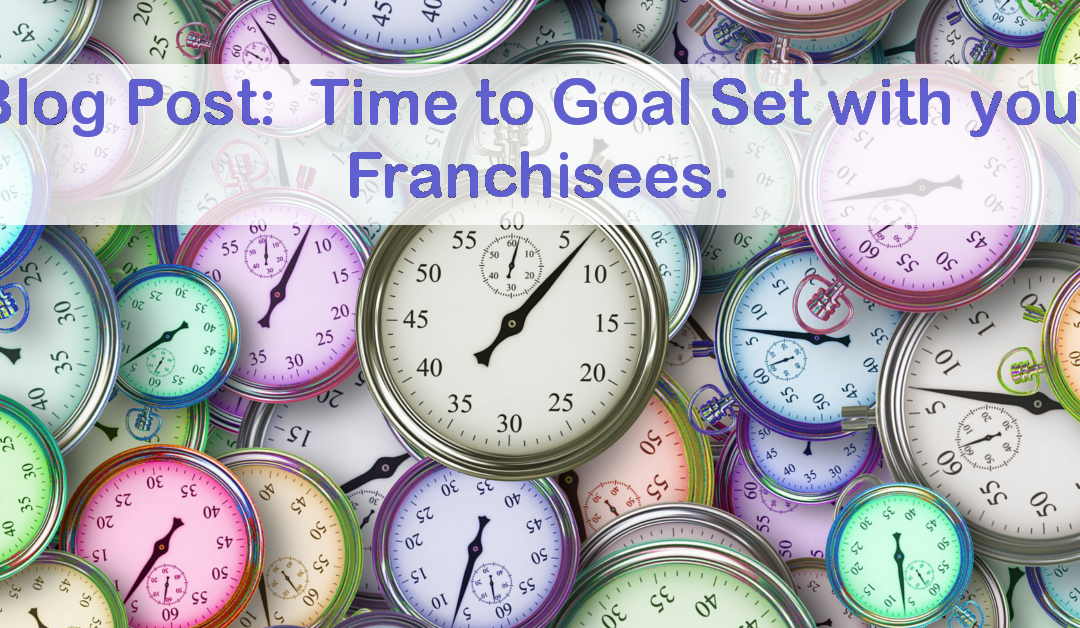It is that time of year again when it is an ideal time to set goals with your franchisees!
End of financial year is the perfect time to set up plans for the next financial year for franchisees. What do they want to make in profit? What sales do they need to make that happen? Who is their next best ideal customers?
Why is end of financial year so good?
Well it is pretty obvious isn’t it. Not matter what has happened this financial year – that is, have they reached their goal or did they not reach it – it is top of mind.
It is the perfect time to review their P&L with them and discuss where money was invested and where it was simply spent. You can see if sales targets were reached and did they provide the profit the franchisee wanted.
Many people avoid setting goals with franchisees that have not reached their goal, thinking that the disappointment of not reaching the goal will stop them from setting their next goal, but this is simply not the case. There are two things to think about when setting goals with franchisees that didn’t reach their goal this year.
Firstly, the reason you set a goal is to discover who you are and what you are capable of whilst working to achieve the goal. It is not about whether the goal is reached or not, but what you learn along the way. Deadlines for goals can always be changed too.
Secondly, it depends on how the franchisee sets goals and if they have ever set goals before. Sometimes for new franchisees, this is the first time they have ever set actual goals so they need to learn how to set goals. Some people set goals that they know they will easily achieve in the time frame, because they love to ‘beat’ their goals and don’t want to disappoint themselves by not reaching the goal. Some people set realistic goals that they will reach, but not generally do better than. They like to work at a paced environment, know they will need to work to get the goal, but they also know what they are capable of. Then you have the third type of goal setters that always set HUGE goals, that often are unrealistic, but they love the thrill of the chase… and sometimes they catch them.
When you have a franchisee that hasn’t reached their goal, ask them how they set the goal and then also which of the three goals above did they set. Sometimes they set the totally optimist, but kind of unrealistic goal, but didn’t realise that they are actually a set a low target and beat it goal setter. Some might have set a totally realistic goal and then feel deflated because they realise they could have done better if they had pushed themselves more and are actually probably the third type of goal setter.
Before setting goals, you need to work out which kind of goals will motivate you. Then you can set the goal, but sometimes you need to set two or three goals to learn about who you are on your way to achieving goals.
Goal setting – especially financial goals – are not about just setting a sales or profit target. When working with franchisees, it is just as important to work out what sort of goal setter they are as the actual goal they set.

